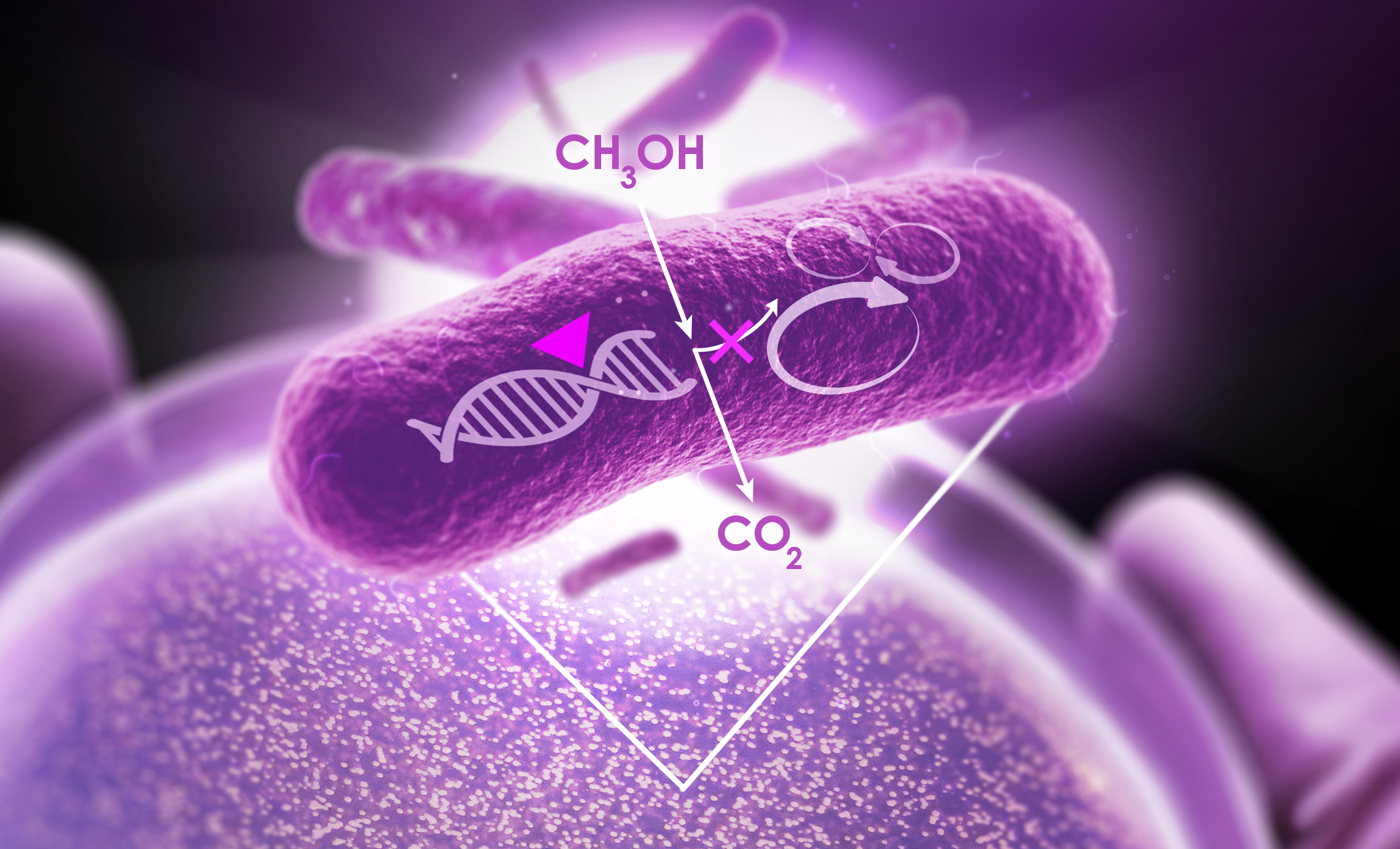(One-carbon) metabolism


Methylotrophs and autotrophs are both capable of carbon fixation. Methylotrophs derive both energy and cellular building blocks from reduced one-carbon compounds, primarily methanol and methane. Autotrophs, however, use carbon dioxide for biosynthesis while requiring separate energy sources.
Methanol synthesized from captured greenhouse gases (CO2 and CH4) offers a promising renewable feedstock with significant potential for carbon-neutral or carbon-negative bioproduction.
Our group has contributed discoveries in one-carbon metabolism, elucidating the pathway and novel enzymes that convert formaldehyde to carbon dioxide and demonstrating the role of tetrahydromethanopterin and methylofuran-dependent enzymes across diverse bacterial species. More recently, we have successfully engineered E. coli to grow solely on methanol by overcoming two major challenges: managing toxic formaldehyde intermediates and developing an autocatalytic process to regenerate one-carbon acceptor molecules within central metabolism. Our synthetic methylotrophic E. coli strain enables product generation without disrupting central metabolism, opening new possibilities for sustainable bioproduction.
We operate high-resolution mass spectrometers for metabolomics of free-living and host-associated bacteria and develop novel software tools to facilitate LC-MS data analysis (eMZed, external page DynaMetexternal page )
Keywords:
Metabolomics; Proteomics; Metabolic engineering; Carbon isotope labeling; Mass spectrometry; Pathway elucidation; Enzyme and coenzyme characterization; Synthetic Biology
Funding: